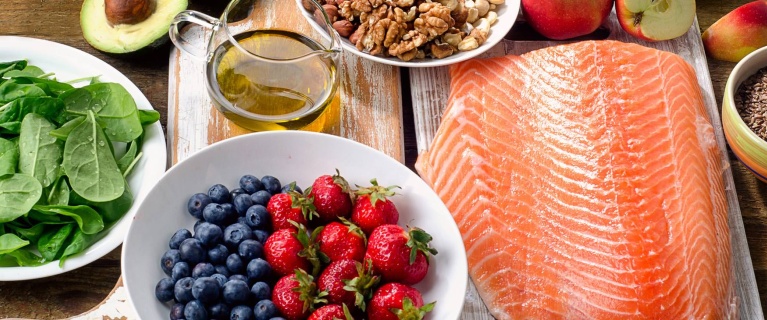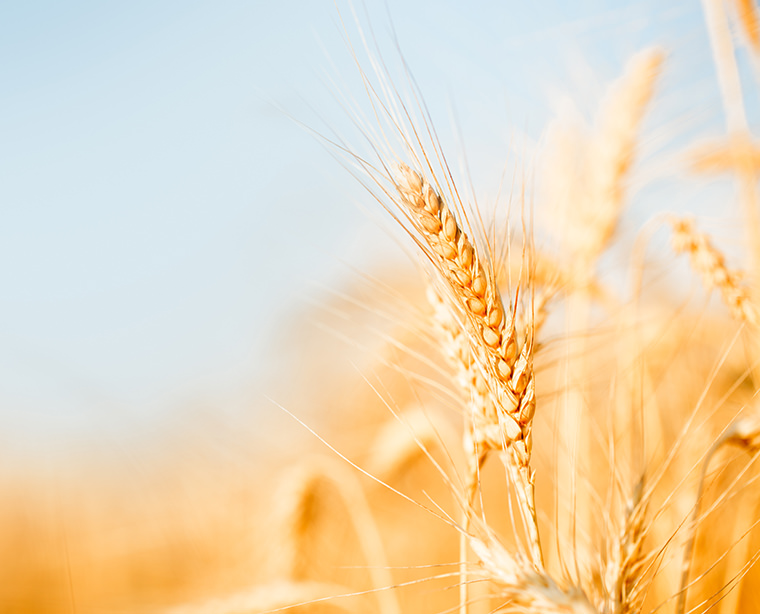

Diet and eczema

Atopic dermatitis is not a food allergy, but there may be a connection between the two.
In exploring the topic of “diet and eczema”, we outline three main concepts: food allergies and forbidden foods, unhealthy foods and, in this chapter, a normal diet is sufficient. Also, in conclusion, we discuss helpful foods such as those with antioxidant or anti-inflammatory benefits.
In case of a food allergy
- In this case and following an allergy assessment, certain foods may be banned for eczema patients due to a severe allergy risk (called anaphylaxis).
- Some cases of eczema are severe as a result of a food allergy and thus require an elimination diet following an allergy assessment.
Staying healthy and/or reducing the symptoms of an ongoing disease.
Everyone requires a normal diet in order to stay healthy and/or reduce the symptoms of an ongoing disease. It is not a diet, but a process of food normalization. One needs to know what it means to eat normally!
In the case of eczema, should certain foods be avoided? Four basic rules
- Reduce consumption of cow’s milk
- Reduce consumption of fast sugars
- Reduce consumption of saturated fat
- Reduce consumption of pesticides and endocrine disruptors (which alter our hormones)
- Wanting to make changes too quickly, becoming frustrated and returning to an unhealthy diet.
- Wanting to cut out these foods completely. There is a difference between drinking half a liter of milk every morning and eating a slice of Camembert cheese once a week.
There are several hidden sources:
- Processed and ultra-processed prepared dishes
- White flour (white bread, especially industrial bread, pasta). Instead, opt for at least semi-wholegrain flours (semi-wholegrain “country-style” bread, semi-wholegrain pasta, etc.).
- Fruit juices (including fresh squeezed orange juice, smoothies, etc.)
- Industrial cereals
There are several hidden sources:
- Red meat
- Processed and ultra-processed prepared dishes
- Fried foods
Ideally, pesticides and endocrine disruptors should be avoided and replaced with local seasonal unprocessed foods produced in accordance with the principles of organic farming, biodynamics or sustainable agriculture.
Add anti-inflammatory foods into your diet
Certain foods have natural anti-inflammatory properties, so it makes sense for people with an inflammatory disease to incorporate them into their diet.
For example (non-exhaustive list):
- Green tea and matcha tea
- Turmeric-black pepper blend
- Ginger
- Berries and red fruits: goji berries, strawberries, raspberries, blueberries, etc.
- Omega-3-rich foods (dark fish: sardines, mackerel, herring; vegetable oil, walnut oil, rapeseed oil, olive oil)
- Dry fruits: nuts, hazelnuts, almonds
- Dark chocolate
- Certain green vegetables: broccoli, artichokes
Once again, one should be mindful of choosing local organic foods. In practice, it can be difficult to know the exact origin and agriculture method of a food imported from the other side of the globe, from countries lacking any sort of agricultural regulations.


